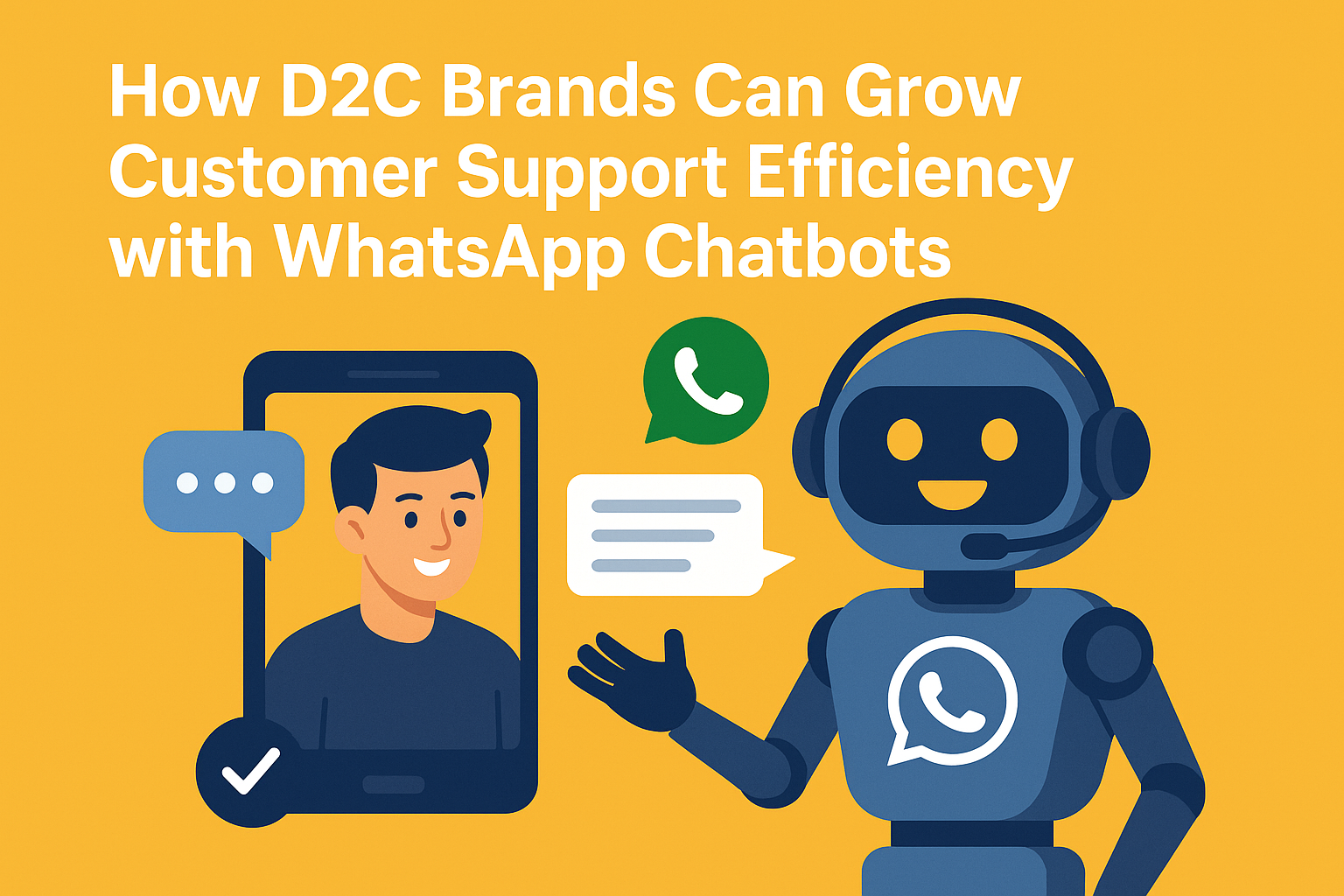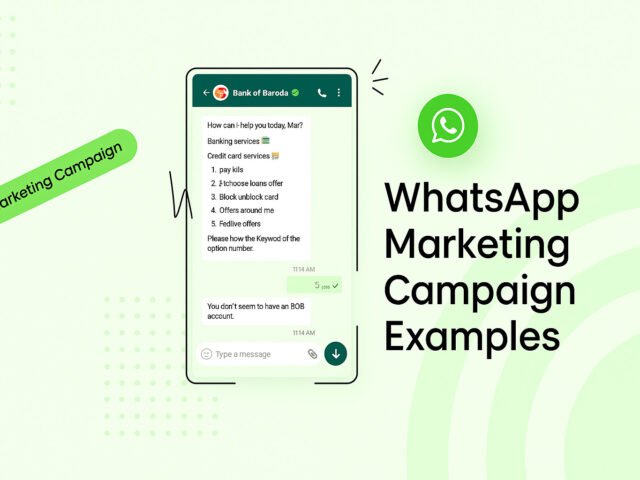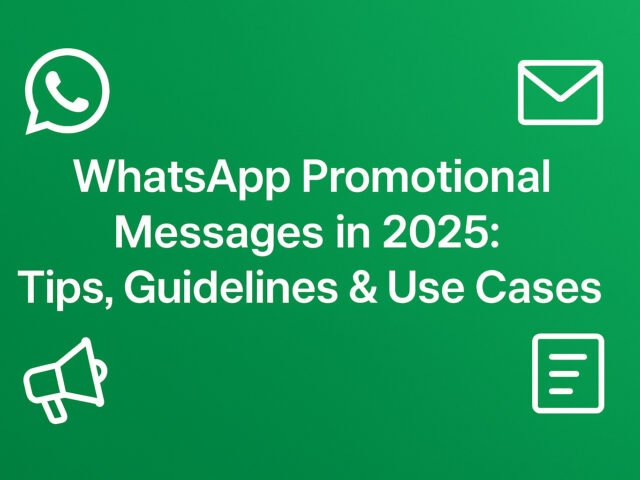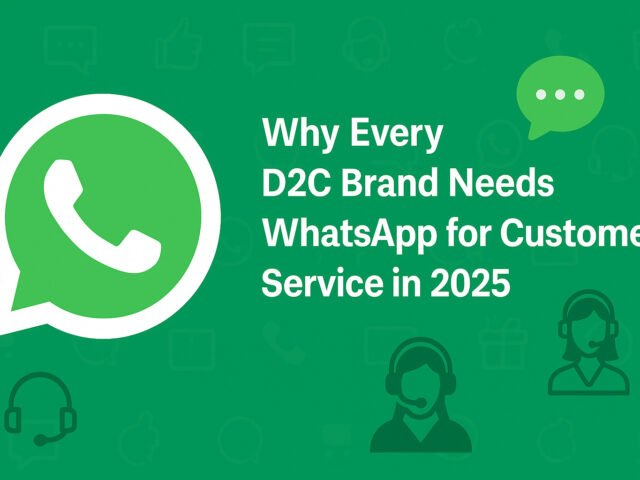How D2C Brands Can Grow Customer Support Efficiency with WhatsApp Chatbot
Introduction
For direct-to-consumer (D2C) brands, the pressure to deliver fast, personalized, and consistent customer support is at an all-time high. Customers expect instant replies, 24/7 service, and a seamless experience. The challenge? Doing it all at scale—without ballooning support costs.
That’s where WhatsApp chatbots come in.
With over 2 billion active users and an open rate of 98%, WhatsApp is the platform where your customers already are. Integrating chatbots into your WhatsApp support strategy empowers your brand to deliver high-efficiency support at scale, without sacrificing personalization.
Why WhatsApp Chatbots Matter for D2C Brands
WhatsApp isn’t just another messaging app—it’s a customer engagement goldmine. Here’s why:
- Unmatched Reach: WhatsApp is the most-used messaging platform globally. Your audience is already on it.
- Familiar & Trusted Interface: Customers are more likely to engage via WhatsApp than email or contact forms.
- Sky-High Engagement: With open rates nearing 98% and response rates over 60%, WhatsApp conversations outshine traditional channels.
For D2C brands, WhatsApp offers a frictionless channel to manage support, orders, updates, and more—all in one conversational thread.
Core Benefits for Support Efficiency
24/7 Instant Responses
WhatsApp chatbots never sleep. They can instantly handle FAQs, order inquiries, returns, and common service issues around the clock—no wait time, no frustration.
Scalability Without Staffing Increases
Your support team can only handle so many queries. A chatbot can handle hundreds simultaneously, reducing wait times and improving resolution rates without growing headcount.
Automation Cuts Costs & Boosts Productivity
Automating repetitive tasks like tracking updates, FAQs, or product inquiries can save up to 30% in support costs, letting your human agents focus on higher-value conversations.
Personalization & Contextual Support at Scale
With access to customer data like order history, preferences, and name, WhatsApp chatbots provide contextual, human-like experiences, boosting customer satisfaction while still being automated.
Key Features & Best Practices to Implement
FAQ Knowledge Base & NLP Integration
Train your chatbot with a well-curated FAQ and Natural Language Processing (NLP) for accurate, conversational responses that feel natural.
Seamless Chatbot-to-Human Handover
When issues get complex, your bot should instantly escalate to a human agent—without losing the context—ensuring a smooth, frustration-free transition.
Order Tracking and Real-Time Updates
Let customers check their order status, shipping progress, and delivery ETA directly in WhatsApp—automatically and in real-time.
Soliciting Feedback & Capturing Insights
Use post-conversation surveys or rating prompts within the chatbot to collect valuable feedback and continuously optimize the customer experience.
Conversational Commerce & Recommendations
Drive revenue during support conversations. WhatsApp chatbots can make personalized product recommendations, recover abandoned carts, and upsell based on chat context.
Integrating with CRM & Helpdesk Systems
For seamless continuity, integrate WhatsApp with your CRM and helpdesk platforms. This keeps every interaction logged and accessible, ensuring full context across all support touchpoints.
Implementation Roadmap for D2C Brands
- Define Goals – Decide whether you’re prioritizing response time, cost savings, or customer satisfaction.
- Build FAQs & Response Flows – Start with your top 20 support queries.
- Choose the Right Platform – Select a chatbot tool that integrates with WhatsApp and your CRM.
- Design Chat Flows & Handover Logic – Create seamless bot-to-agent transitions.
- Test & Launch – Soft launch with limited users, gather feedback, then expand.
- Monitor, Train, and Iterate – Regularly review bot accuracy, update flows, and optimize based on performance data.
Conclusion
For D2C brands striving to scale efficiently, WhatsApp chatbots are no longer a nice-to-have—they’re essential. They deliver instant, automated, and personalized support while slashing costs and improving customer satisfaction.
With the right strategy and tools, your brand can handle thousands of conversations without missing a beat.
Want to start optimizing your customer service and support?
👉 Explore our guide here.


















